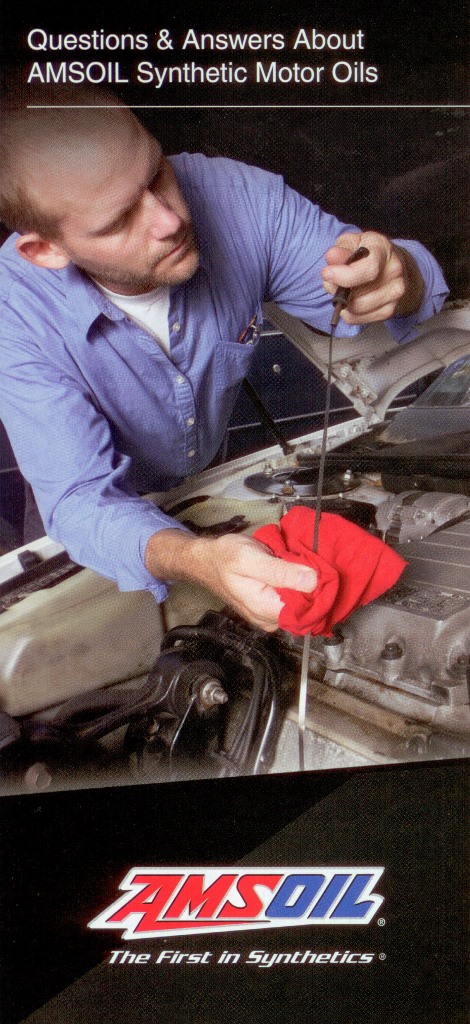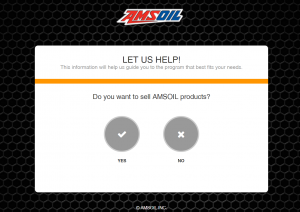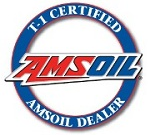 We’ve been meaning to talk about the subject of engine oil additives for a while. You see before I discovered AMSOIL and learned that a properly formulated engine oil is designed in a laboratory not in your garage with aftermarket additives I too have used engine oil additives in the past.
We’ve been meaning to talk about the subject of engine oil additives for a while. You see before I discovered AMSOIL and learned that a properly formulated engine oil is designed in a laboratory not in your garage with aftermarket additives I too have used engine oil additives in the past.
Back in the early 1990’s I bought a new Ford Ranger pickup. I wanted this vehicle to last, so I thought I was taking care of it when I dumped that bottle of “Slick it Up” Super additive that was touted to increase mileage and reduce wear. Little did I know I was probably doing long term irreversible damaged caused by the chlorinated paraffins that were in that bottle. You see, see how “slick” that bleach is next time you get it on your hand. But guess what heat, moisture and pressure do to bleach? It is turned into hydrochloric acid and is know to “eat” metal bearings over time.
Maybe you don’t believe me, read this article written early this year by AMSOIL Corporate Technical Vice President Dan Peterson:
Oil additives can offset the careful balance of a Well-Formulated motor oil; an overabundance of anti-wear agents, for example, can lead to reduced resistance to corrosion.
I don’t get up on my soapbox very often – partly because I have put on a few extra pounds and don’t want to break the box, and partly because it’s just not my personality. not a lot of things really get to me, but when I come across something that does, you don’t want to be with me in the car for a long drive. One of these things is engine oil additives. The last time I stopped by the local parts store to pick up a tool for a brake job on my Ford Fusion, I stood in the aisle for a full 10 minutes looking at the huge display of engine oil additives. I was not in a hurry, so I picked up a dozen or so and read the marketing claims.
Wow; it seems almost any internal engine problem in the world can be solved simply by using an engine oil additive. “restores engine life, eliminates dry starts, eliminates engine noise, restores parts’ surfaces and compensates current wear!” now I see why people buy all these oil additives. Too busy or just not interested in taking care of your vehicle? Just wait until you have a problem and then buy a solution at the local parts store and you are back in business. Our instant-gratification culture pushes us into believing in quick solutions. In reality, there are very few quick solutions that can correct years of neglect in any area of life, including your internal combustion engine. Very few, if any, engine oil additives solve engine issues overnight or somehow restore engines to their original condition. So how do you get the longest, trouble-free life out of your engine? use a highquality, trusted brand of synthetic motor oil regularly and don’t add any engine oil additives. Formulating a motor oil to perform all the critical jobs required by your engine is a balancing act. You can’t just focus on improving one property without testing and evaluating the impact on all critical oil properties. Many times, use of additives improves one property, but causes other properties to take a nosedive.
Formulating synthetic motor oils is a core strength developed over the past 40 years at AMSOIL, and it is not an easy task. Motor oils need to protect engines against abnormal wear, excessive varnish, sludge, rust and corrosion and damaging foam. Motor oils also need to remove heat, help meet fuel economy standards, keep engine seals from leaking and keep catalytic converters working effectively over their projected lives.
Many negative outcomes derived from using engine oil additives have been documented over the years, including accelerated corrosion, excess oil thickening in cold temperatures and increased deposit formation. Most of these negative outcomes are relatively complicated chemical interactions, but just like your family is interconnected, so is the chemistry in your motor oil. When you add uncle Buck to your family for a week, you and the kids all have a lot more fun staying up late and listening to stories, but he upsets the family balance. The kids have black circles under their eyes from staying up too late, you argue with your spouse about a few choice new words the kids picked up and you have to clean up cigar butts all over the garage when he finally leaves. Seems fun at first, but a week-long visit proves having uncle Buck live with you for good isn’t such a good idea.
The chemicals in motor oils are all interconnected and work together like a family unit to provide all the important properties required to keep your engine operating well. Most motor oils are designed with a measured amount of wear protection and deposit control. The problem comes when you add a whole bunch of extra or new wear protection or deposit control, and it ends up creating corrosion or destroying cold temperature properties. Motor oils that perform well have some uncle Buck built in, but at an appropriate level that does not upset critical chemistry in other areas designed to keep your engine running smoothly over the long run.
If you want a more detailed explanation by industry experts, a recent noria announcement outlined that “Aftermarket oil additives can backfire.” In the book, “Practical Handbook of Machinery Lubrication,” the following description is listed:
“Increasing the percentage of a certain additive may improve one property of an oil while at the same time degrade another. When the specified concentrations of additives become unbalanced, overall oil quality can be affected. Some additives compete with each other for the same space on a metal surface. If a high concentration of an anti-wear agent is added to the oil, the corrosion inhibitor may become less effective. The result may be an increase in corrosion-related problems.”
It’s a much fancier way of saying too much of your uncle Buck is not good for your marriage. next time you talk to someone who is contemplating using one of those flashy new engine oil additives, tell them about the importance of maintaining the critical balance in motor oil and what can happen when it becomes unbalanced.
To demonstrate more of what this article talks about take a look at this hokey demonstration we did with a Lucas Oil Prop that you can find in most auto parts stores these days.
Again, maybe you should think twice before using any type of engine oil Additive.
According to the AMSOIL Brochure:
Answers to Common Questions About AMSOIL Synthetic Motor Oils
Q: Should oil additives or aftermarket products be added to AMSOIL motor oils?
A: No, you don’t need them. AMSOIL motor oils are formulated under the strictest quality control standards to provide superior lubrication performance. Additives cost money and only detract from the quality of AMSOIL motor oils.
To learn how to get the best lubrication possible for your vehicles and equipment use the AMSOIL Online Vehicle Lookup Guide for your vehicle or contact us directly for the most up to date information.
Michael and Alecia Sparks, AMSOIL Dealer / Direct Jobber931-801-9400 call/text
AMSOIL Contact Page





Trackbacks/Pingbacks